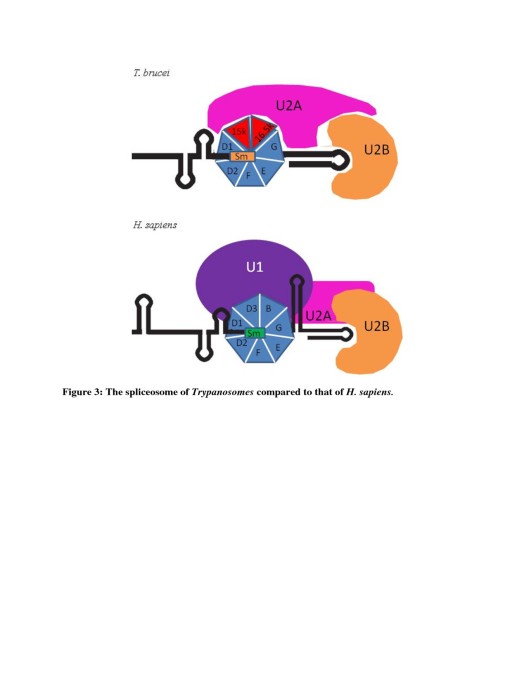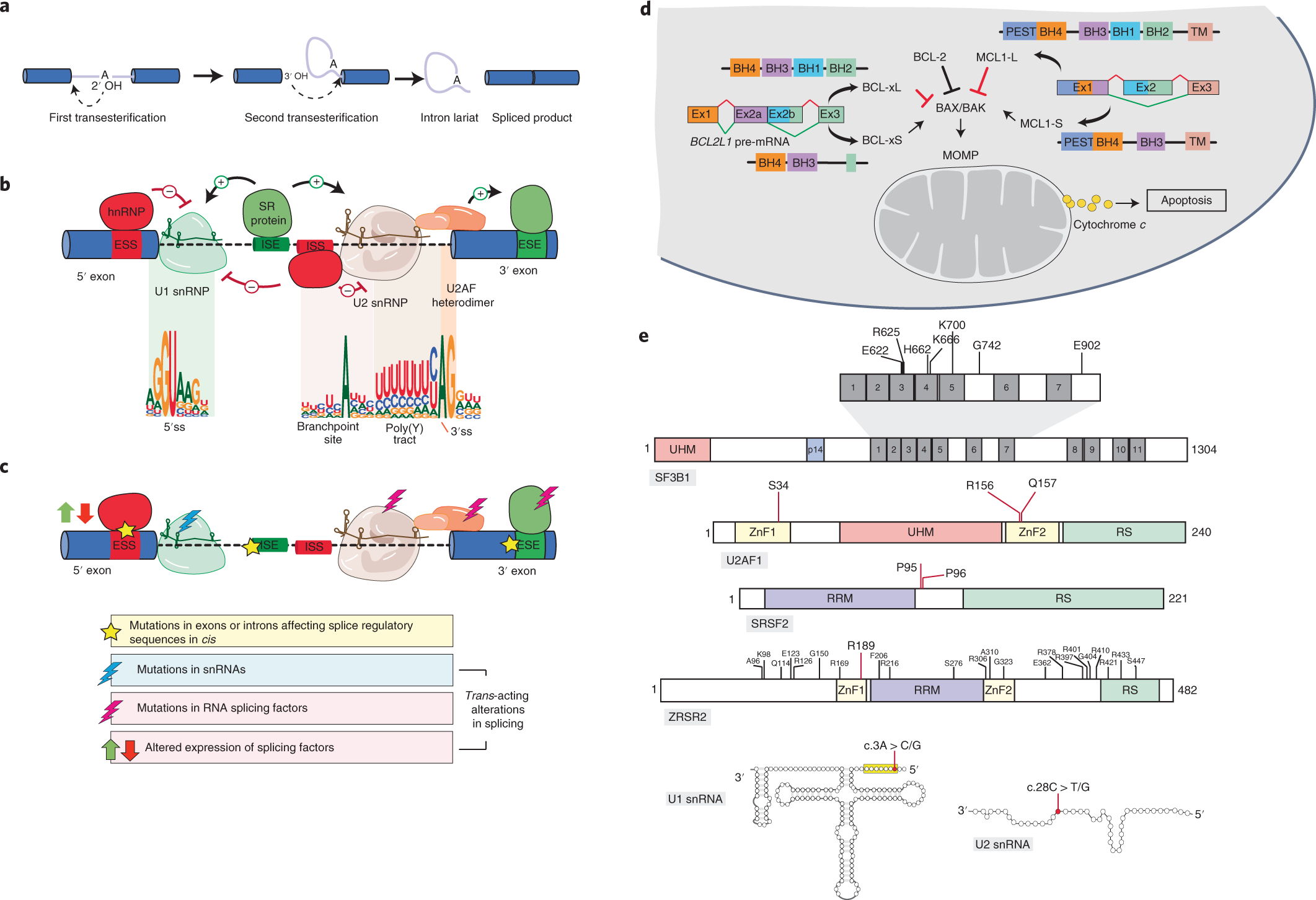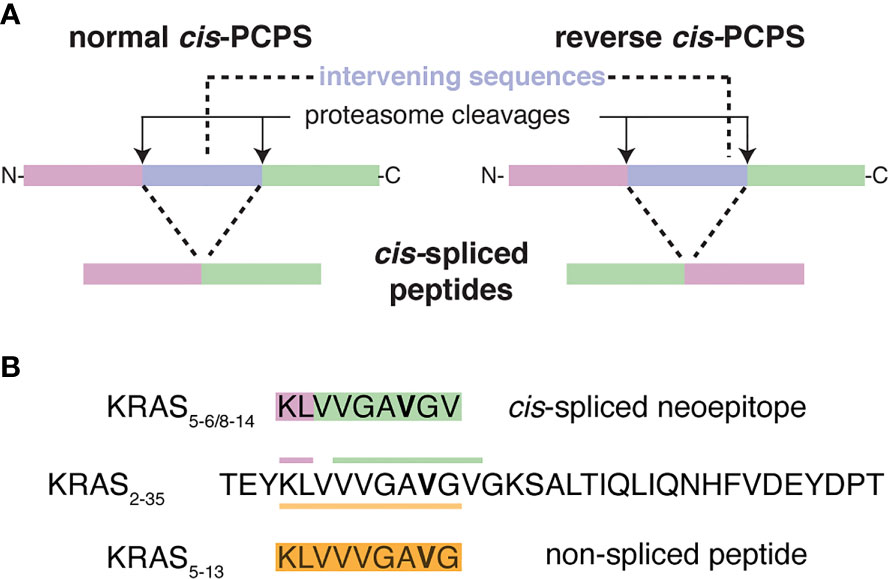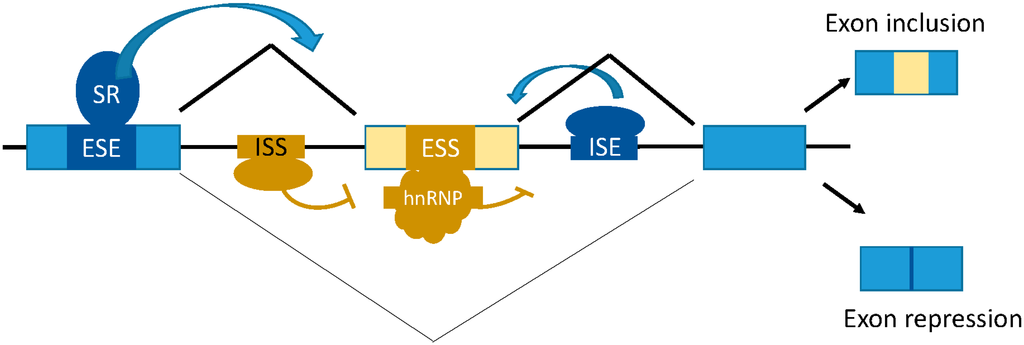The role played by alternative splicing in antigenic variability in
Por um escritor misterioso
Last updated 10 novembro 2024

Endo-parasites that affect humans include Plasmodium, the causative agent of malaria, which remains one of the leading causes of death in human beings. Despite decades of research, vaccines to this and other endo-parasites remain elusive. This is in part due to the hyper-variability of the parasites surface proteins. Generally these surface proteins are encoded by a large family of genes, with only one being dominantly expressed at certain life stages. Another layer of complexity can be introduced through the alternative splicing of these surface proteins. The resulting isoforms may differ from each other with regard to cell localisation, substrate affinities and functions. They may even differ in structure to the extent that they are no longer recognised by the host’s immune system. In many cases this leads to changes in the N terminus of these proteins. The geographical localisation of endo-parasitic infections around the tropics and the highest incidences of HIV-1 infection in the same areas, adds a further layer of complexity as parasitic infections affect the host immune system resulting in higher HIV infection rates, faster disease progression, and an increase in the severity of infections and complications in HIV diagnosis. This review discusses some examples of parasite surface proteins that are alternatively spliced in trypanosomes, Plasmodium and the parasitic worm Schistosoma as well as what role alternate splicing may play in the interaction between HIV and these endo-parasites.

INSPIRED Symposium Part 4B: Chimeric Antigen Receptor T Cell

Bioconjugation Approaches to Producing Subunit Vaccines Composed

Small variant surface antigens and Plasmodium evasion of immunity

The Expanding Landscape of Alternative Splicing Variation in Human

Dysregulation and therapeutic targeting of RNA splicing in cancer

The role of alternative splicing in cancer: From oncogenesis to

Diversification of antibodies after B-cells encounter antigen

TCR-engineered T cell therapy in solid tumors: State of the art

Frontiers Response: Commentary: An In Silico–In Vitro Pipeline

Non‐coding RNAs in malaria infection - Lodde - 2022 - WIREs RNA

Expression of human IgD by alternative splicing and CSR. (A) Ig

IJMS, Free Full-Text
Recomendado para você
-
scpcb/NPCs.bb at master · Regalis11/scpcb · GitHub10 novembro 2024
-
 SWITCHBLADE Skull-T – Nomad Cigars10 novembro 2024
SWITCHBLADE Skull-T – Nomad Cigars10 novembro 2024 -
 Card Games SCP Foundation Card Paper Blind Box Shelter 049 Monster10 novembro 2024
Card Games SCP Foundation Card Paper Blind Box Shelter 049 Monster10 novembro 2024 -
 Milk Hub - SCP Foundation10 novembro 2024
Milk Hub - SCP Foundation10 novembro 2024 -
 Support ✨LittleRain🦋 on Ko-fi! ❤️. /cringegobrrr - Ko10 novembro 2024
Support ✨LittleRain🦋 on Ko-fi! ❤️. /cringegobrrr - Ko10 novembro 2024 -
 7130 Mahogany #6, Hyattsville, MD 20785, MLS# MDPG208294410 novembro 2024
7130 Mahogany #6, Hyattsville, MD 20785, MLS# MDPG208294410 novembro 2024 -
Version 23.11.0 introduces error fatal: could not read Username10 novembro 2024
-
 First Friday Gallery Events & Exhibit Openings for November in10 novembro 2024
First Friday Gallery Events & Exhibit Openings for November in10 novembro 2024 -
 MEV Army - Collection10 novembro 2024
MEV Army - Collection10 novembro 2024 -
 SimplePlanes Fnaf 1 Office V210 novembro 2024
SimplePlanes Fnaf 1 Office V210 novembro 2024
você pode gostar
-
 Bola Basquete Basquetebol Oficial Penalty Crossover 7.8, Magalu Empresas10 novembro 2024
Bola Basquete Basquetebol Oficial Penalty Crossover 7.8, Magalu Empresas10 novembro 2024 -
 clannad after story episode 17 – Beneath the Tangles10 novembro 2024
clannad after story episode 17 – Beneath the Tangles10 novembro 2024 -
 Devs de Call of Duty estão irritados com piada de Christopher Judge10 novembro 2024
Devs de Call of Duty estão irritados com piada de Christopher Judge10 novembro 2024 -
 Stream Katekyo Hitman Reborn review by Indian anime fans (IMAAF)10 novembro 2024
Stream Katekyo Hitman Reborn review by Indian anime fans (IMAAF)10 novembro 2024 -
 Brinquedo Jogo Texas Poker Set Lata com 200 fichas e 2 Baralhos - TEXAS HOLD - Jogo de Poker - Magazine Luiza10 novembro 2024
Brinquedo Jogo Texas Poker Set Lata com 200 fichas e 2 Baralhos - TEXAS HOLD - Jogo de Poker - Magazine Luiza10 novembro 2024 -
 Nintendo 3DS Legend of Zelda: Ocarina of Time Limited Edition Bundle Black Handheld System for sale online10 novembro 2024
Nintendo 3DS Legend of Zelda: Ocarina of Time Limited Edition Bundle Black Handheld System for sale online10 novembro 2024 -
Kah Dog - Baconese meu povo! BACONESE!! 😱😱😱 Já sabe né? Na10 novembro 2024
-
 Pokémon TCG: Estúdio de 'Your Name' faz animação celebrando o Campeonato Mundial10 novembro 2024
Pokémon TCG: Estúdio de 'Your Name' faz animação celebrando o Campeonato Mundial10 novembro 2024 -
 Modelos de Posts de Natal para editar10 novembro 2024
Modelos de Posts de Natal para editar10 novembro 2024 -
 My dlc want as a noob to this series : r/StreetFighter10 novembro 2024
My dlc want as a noob to this series : r/StreetFighter10 novembro 2024
